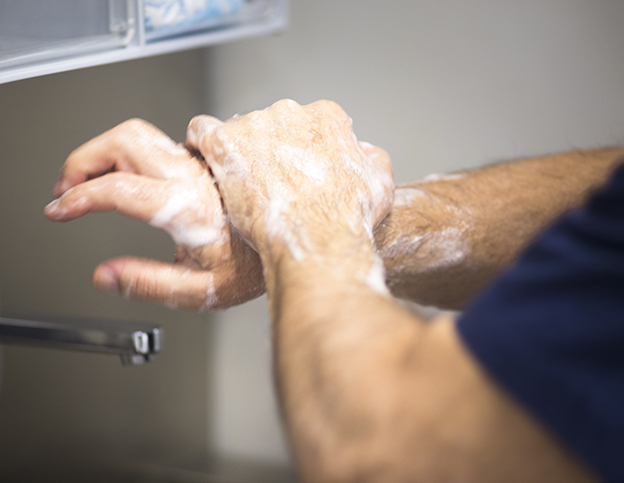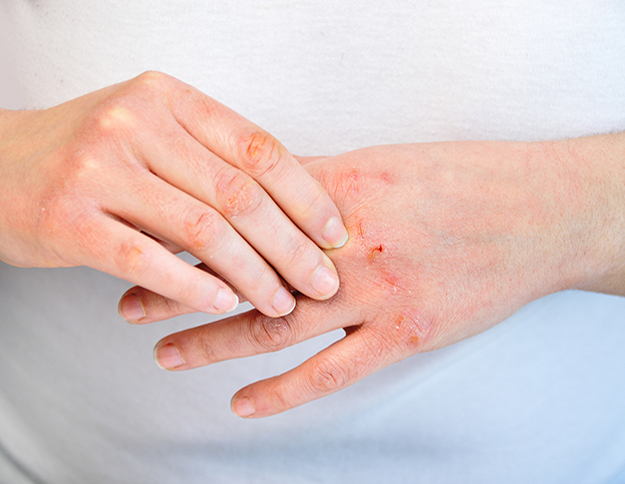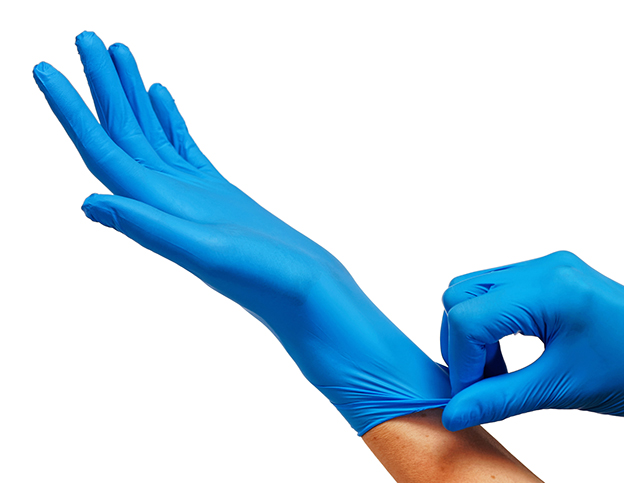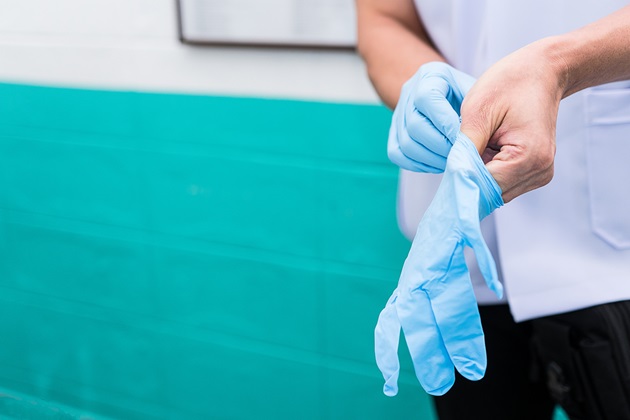Inappropriate glove use poses an infection risk

There is a high incidence of nurses developing hand dermatitis caused by frequent exposure to water, cleaning agents and glove use, leading to damaged skin and soreness. This can result in nurses being unable to perform hand hygiene so they pose an infection risk and cannot maintain patient-contact activities.
“From a patient perspective, we are concerned that inappropriate use of gloves may undermine infection-prevention strategies as contaminated gloves are capable of transmitting infections just the same as dirty hands,” says Rose Gallagher, RCN Professional Lead for Infection Prevention and Control. “We also know that patients can feel stigmatised where there is inappropriate glove use, such as wearing them to make unsoiled beds.”
Wear gloves to protect yourself
An RCN Tools of the Trade guide, which was produced and disseminated with support from DebMed, offers advice on when to wear or remove gloves. For example, when used to protect nursing staff they should be worn when anticipating contact with blood or bodily fluids and when contact is likely with chemical hazards such as disinfectants or chemotherapy drugs.
Damaged gloves should be removed, and remember that glove use is not an alternative to hand hygiene. Prolonged glove use can also increase the risk of occupational dermatitis.
Employers have a legal duty

Kim Sunley, RCN National Officer, says there are also legal issues surrounding glove use: “There is a legal requirement for organisations to protect staff from work-related skin problems. These can develop into painful, debilitating conditions which may require nursing staff to be moved out of clinical areas due to infection risks from cracked skin and lesions on their hands. We can ill afford to lose staff to preventable conditions.”
The Health and Safety Executive has served improvement notices on NHS organisations that have failed to manage the skin health of their employees.
Wear the right glove for the right task

Types of glove fall into two main categories – examination and protective. Some, but not all, meet the standard required to protect staff against chemical permeation. It is important to understand which gloves are suitable for which activities in your workplace. In NHS settings, procurement teams can advise.
Tell your manager if you develop skin problems

To prevent problems with skin health, wear appropriate gloves and take care of your hands by following appropriate hand-washing procedures. Tell your manager immediately if you develop problems which you suspect may be related to glove use or exposure to substances at work.
If you have an RCN safety representative in your workplace, seek advice on steps to take. Above all, if you develop problems with the skin on your hands tell your manager as soon as possible.








